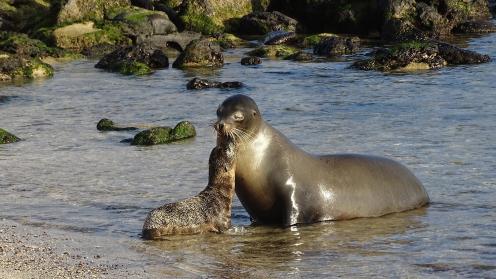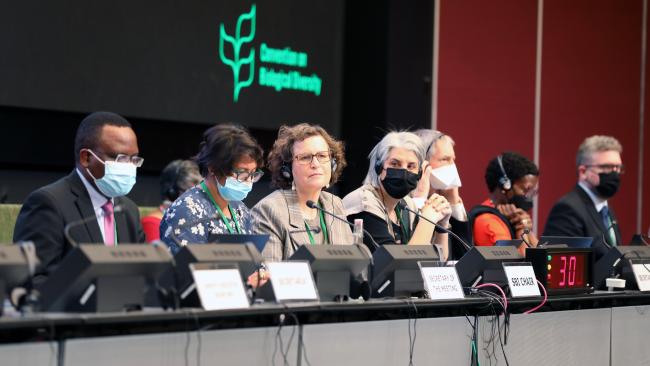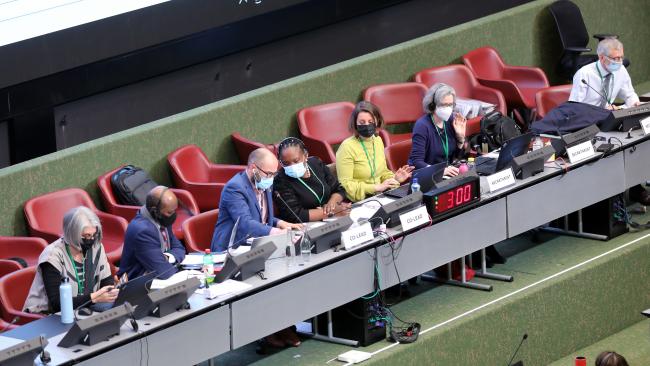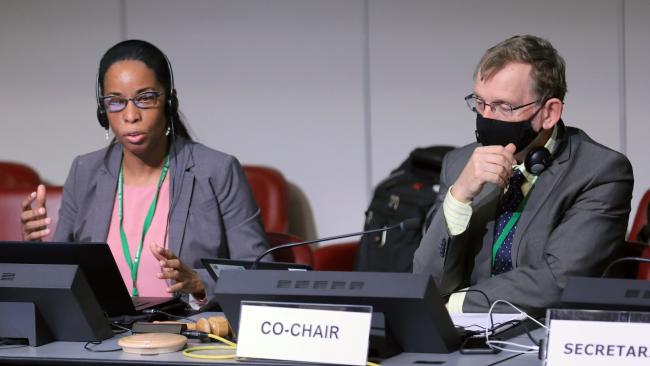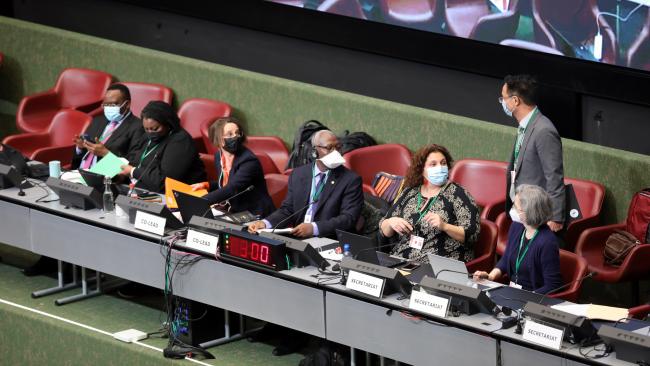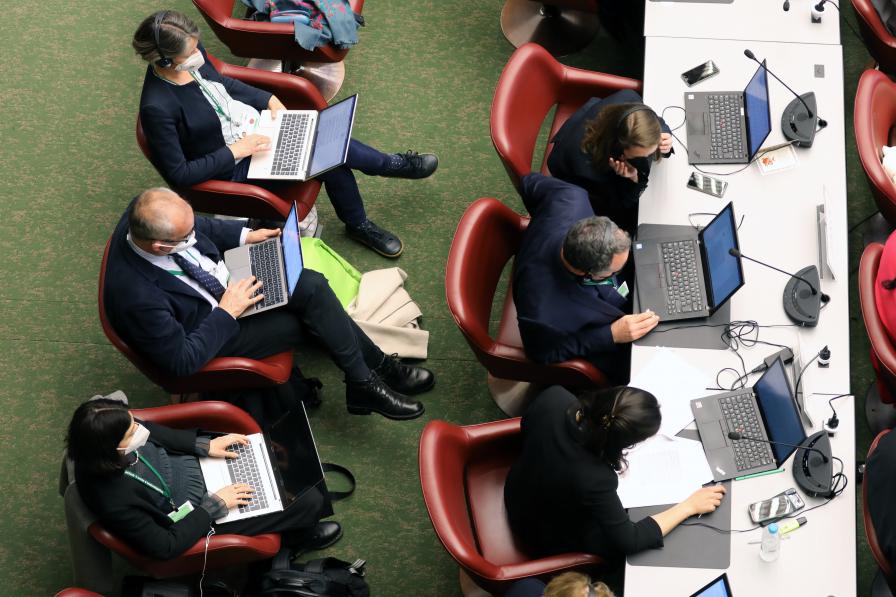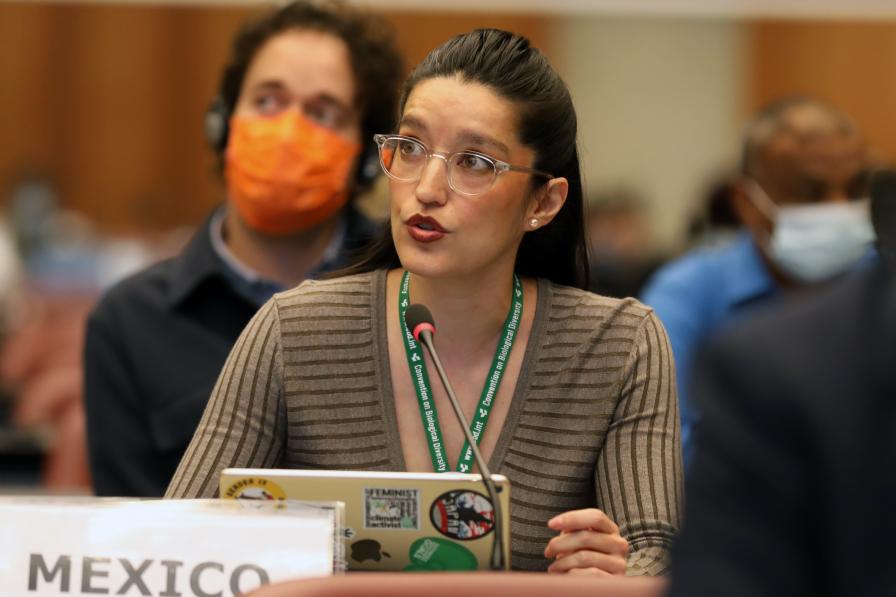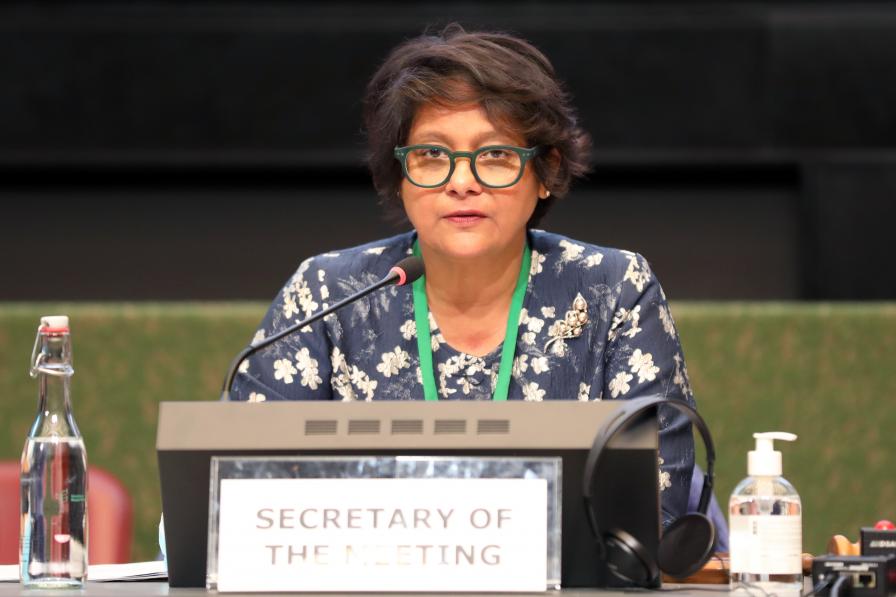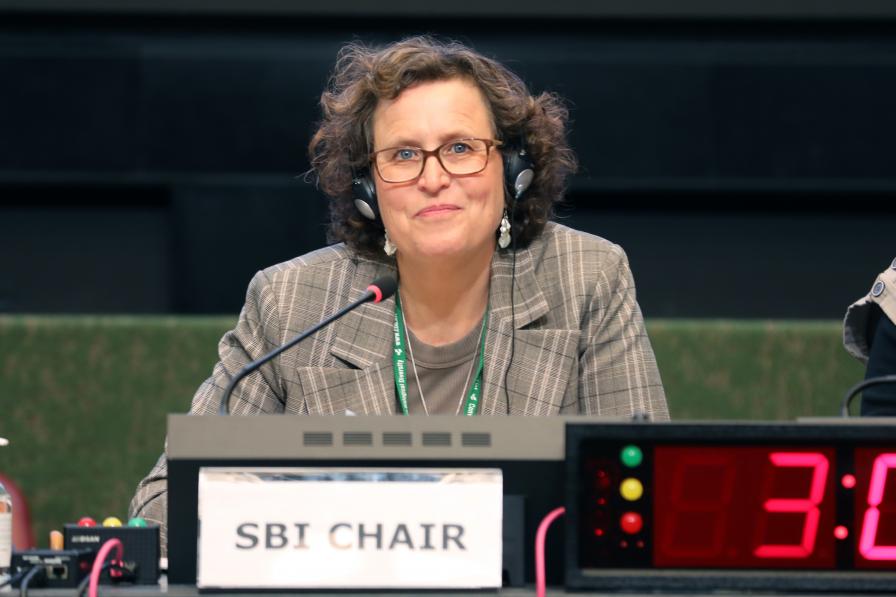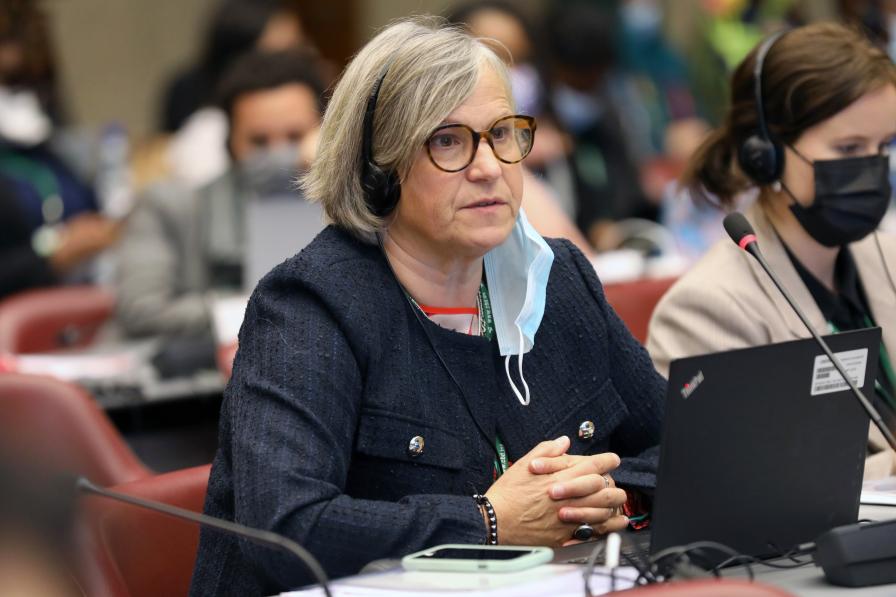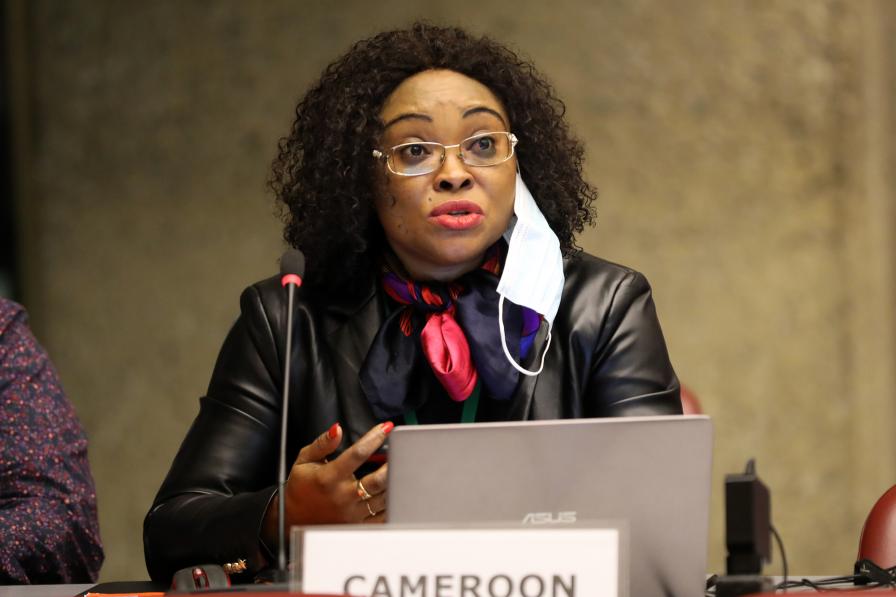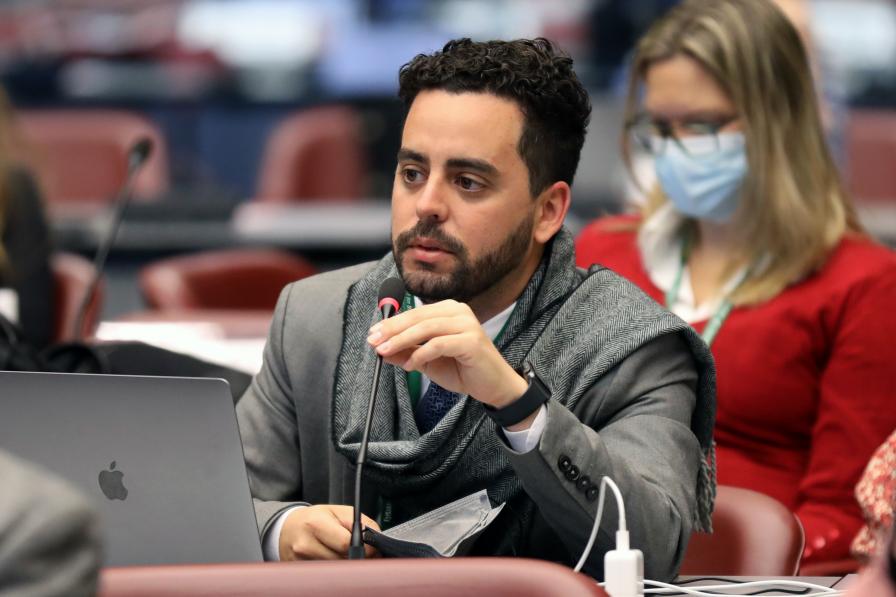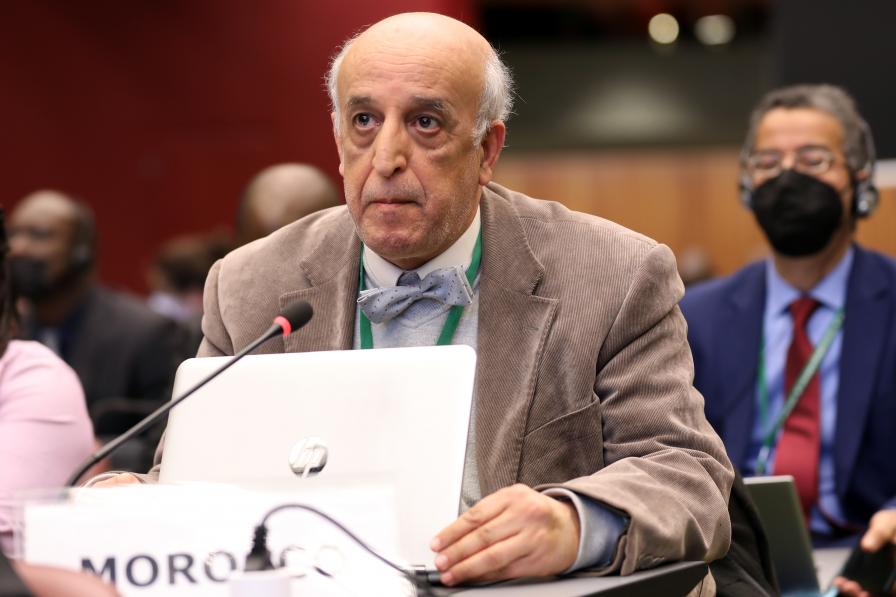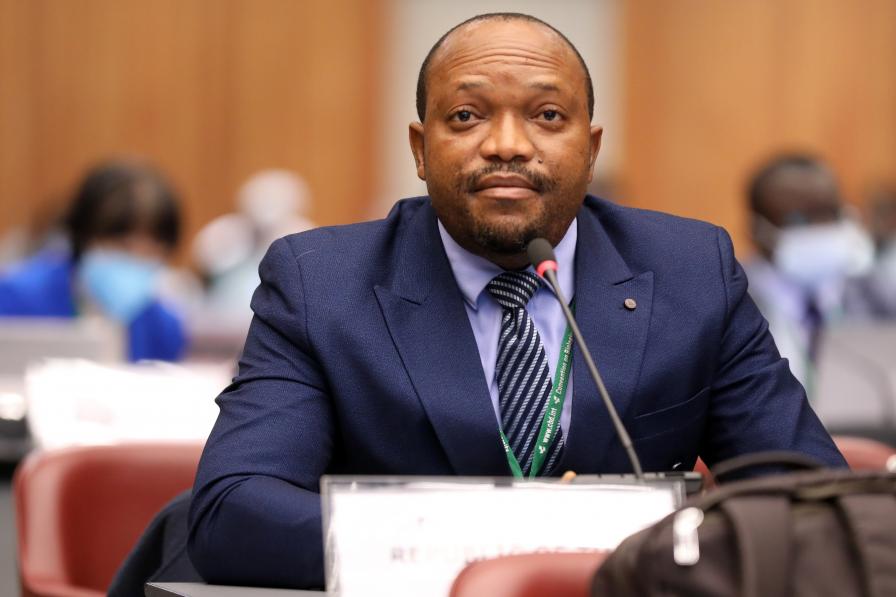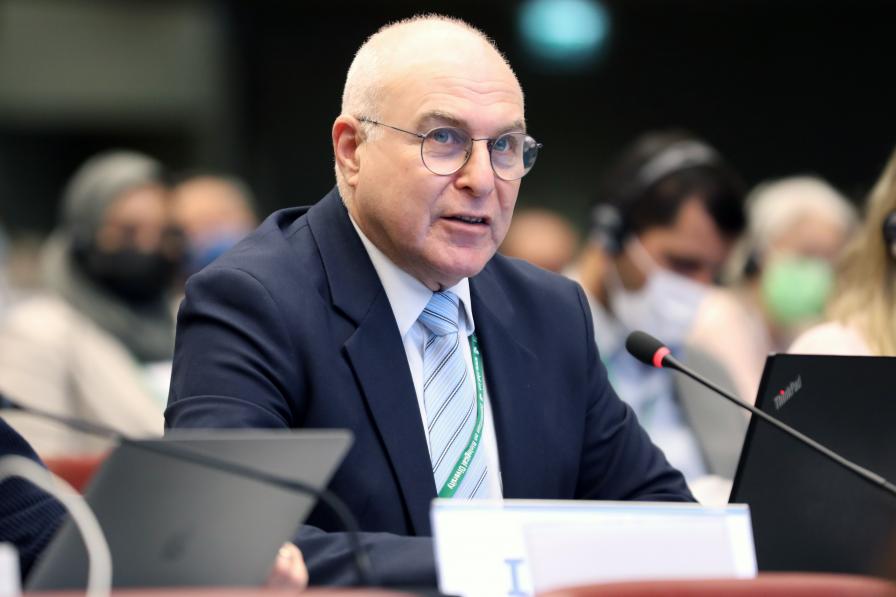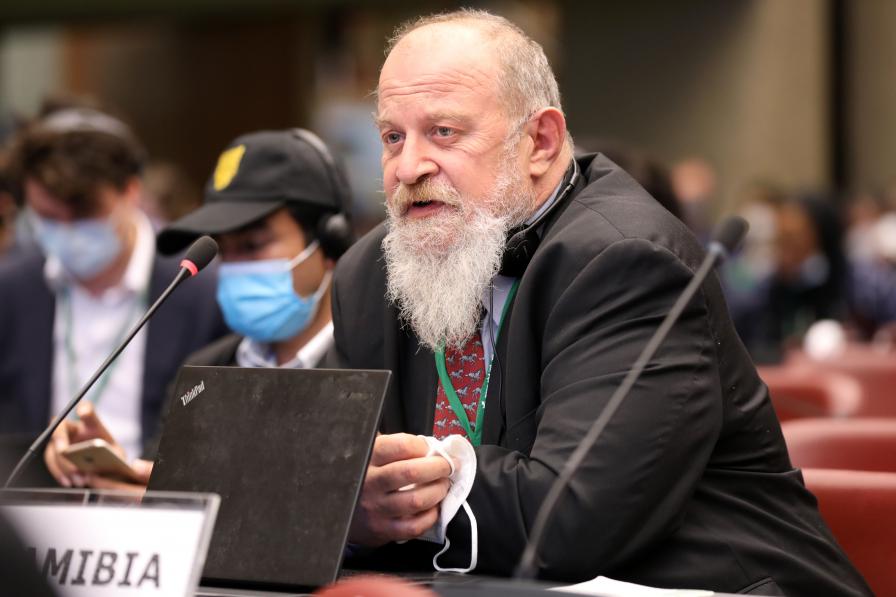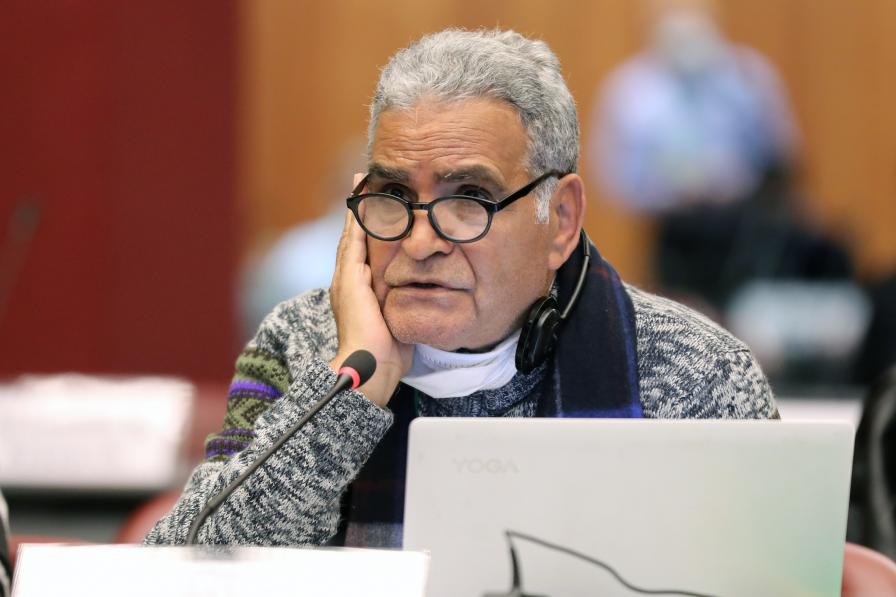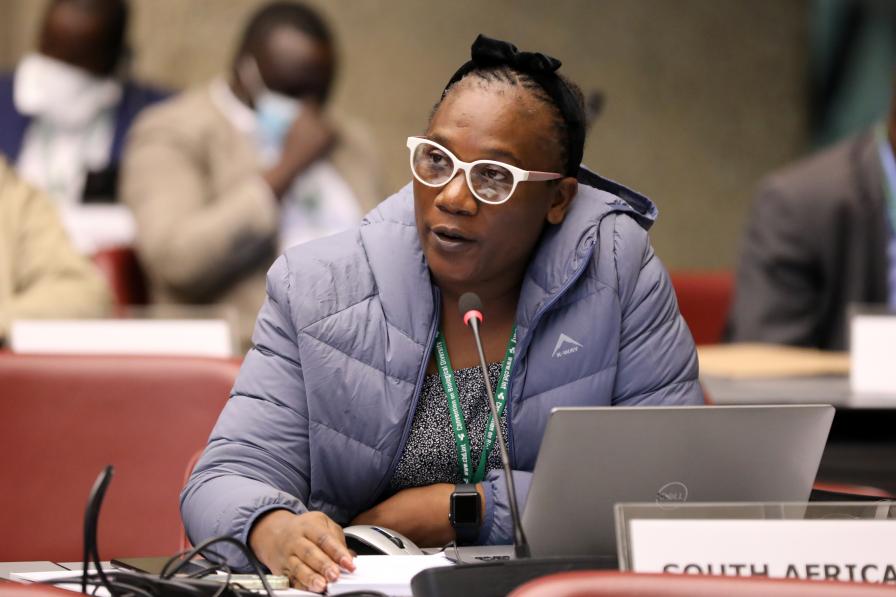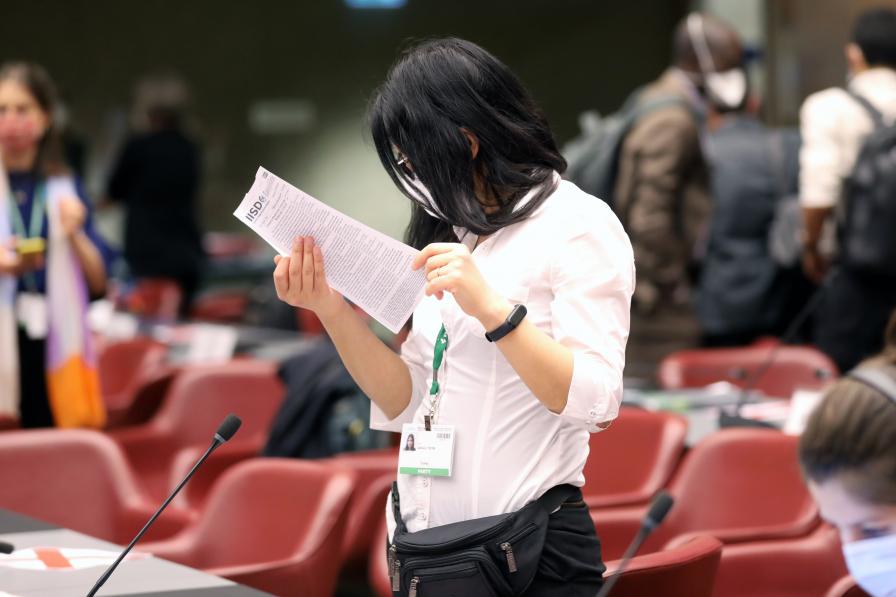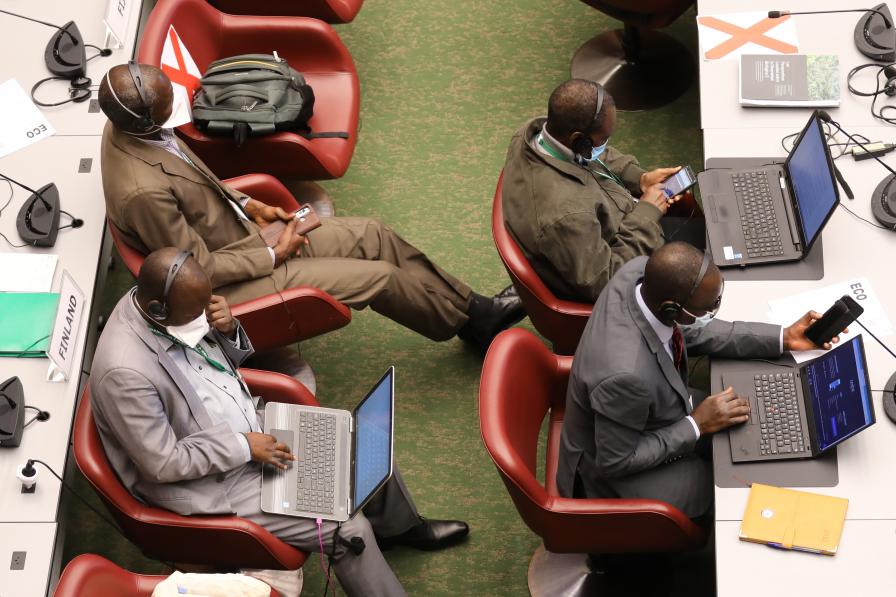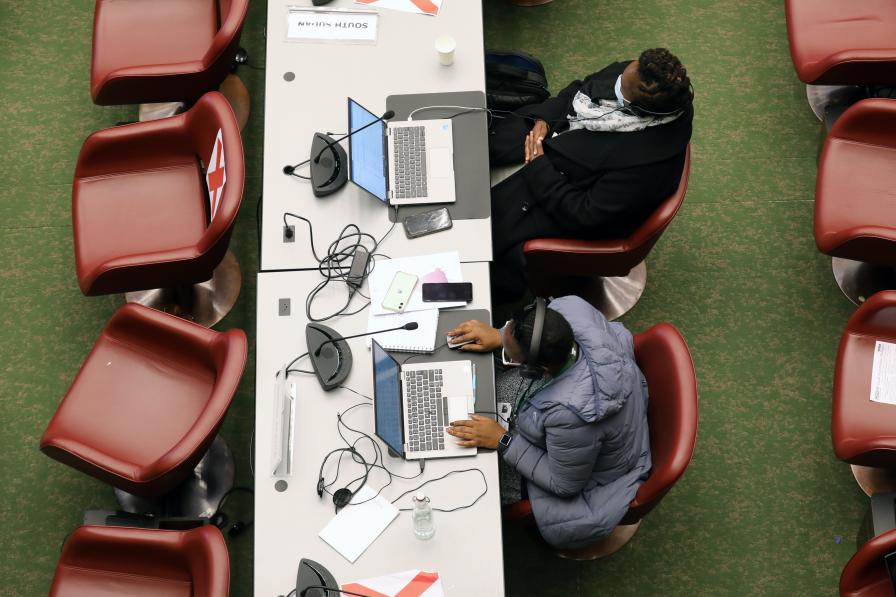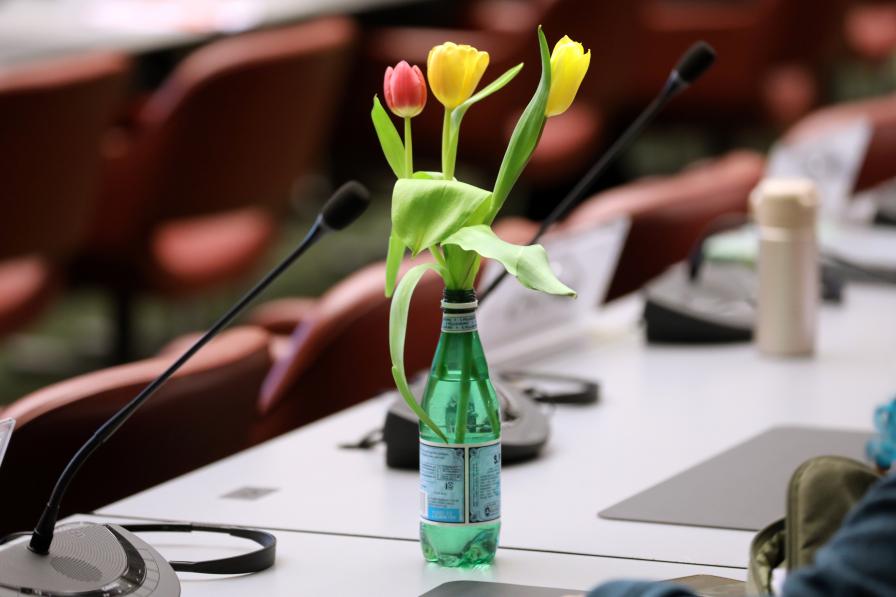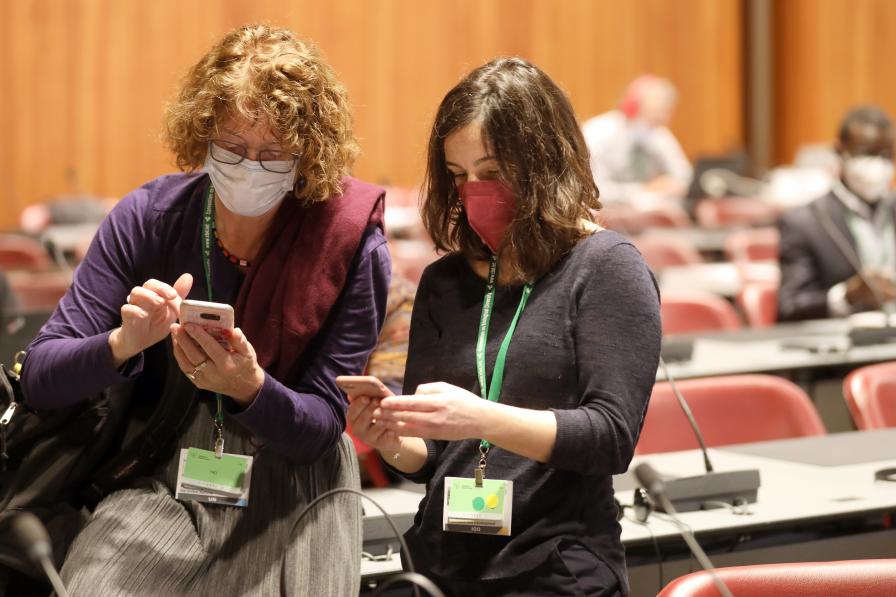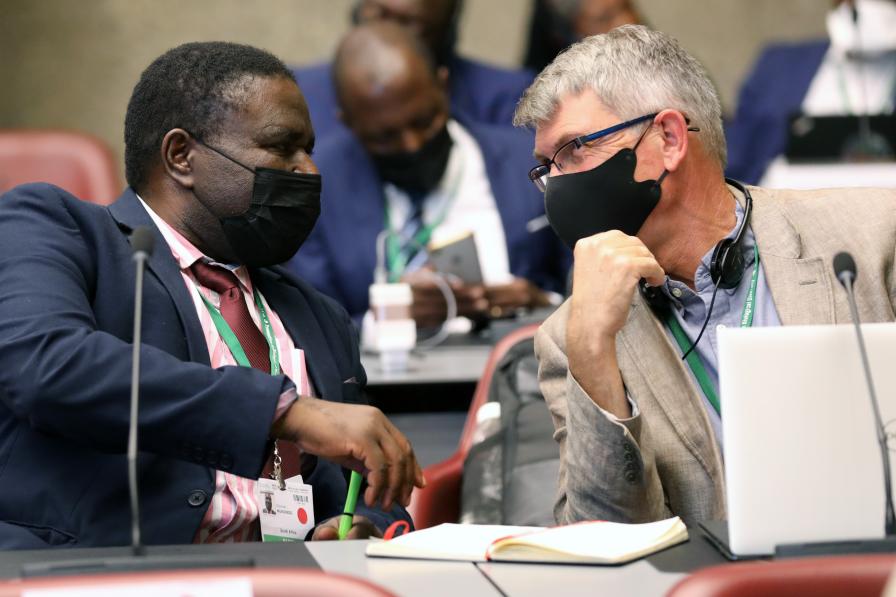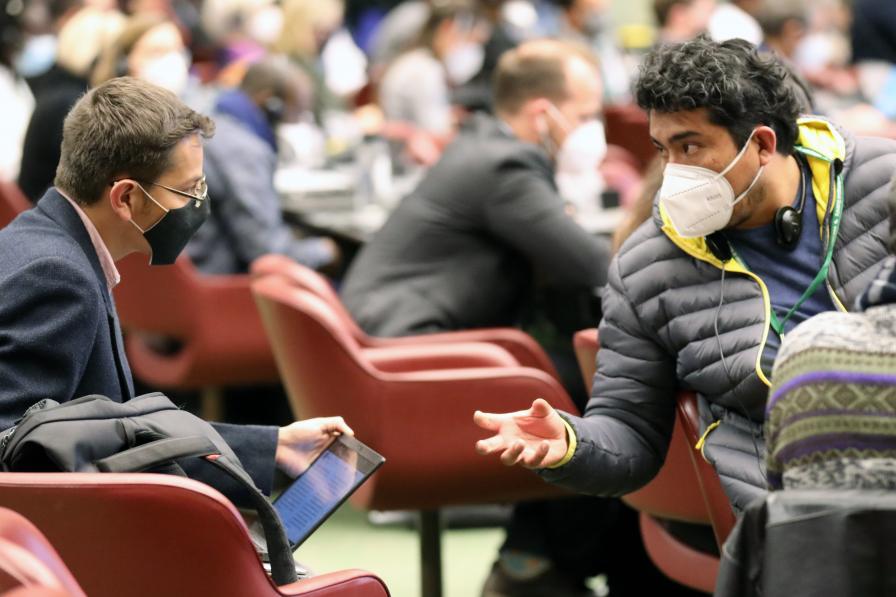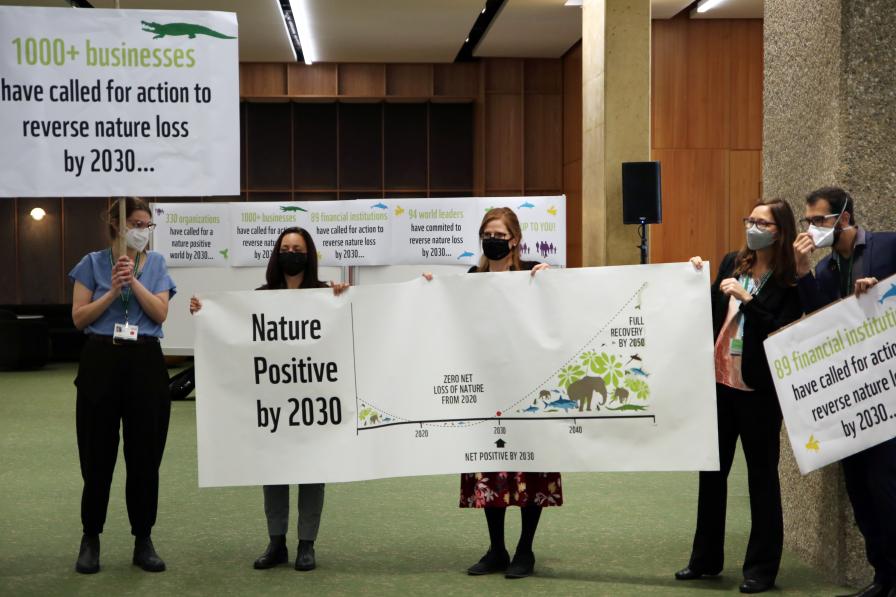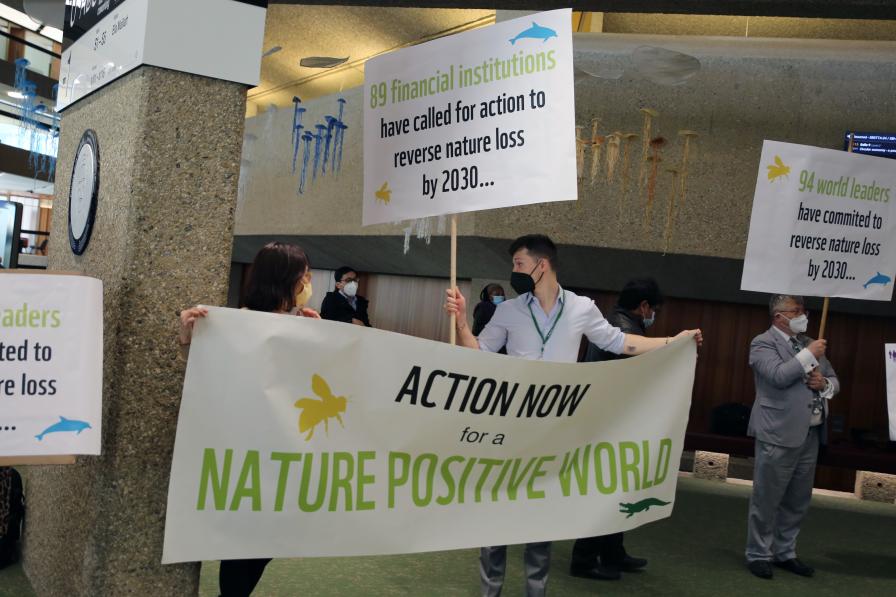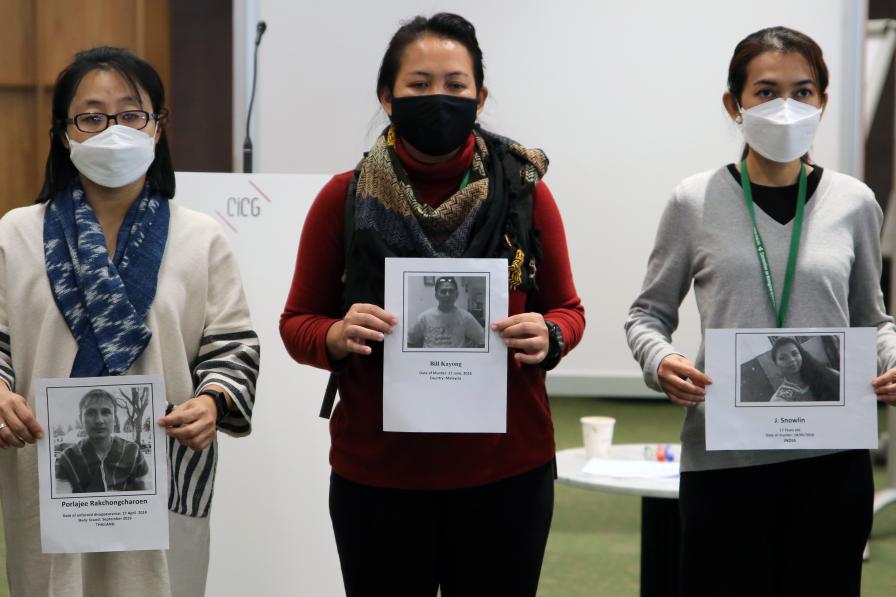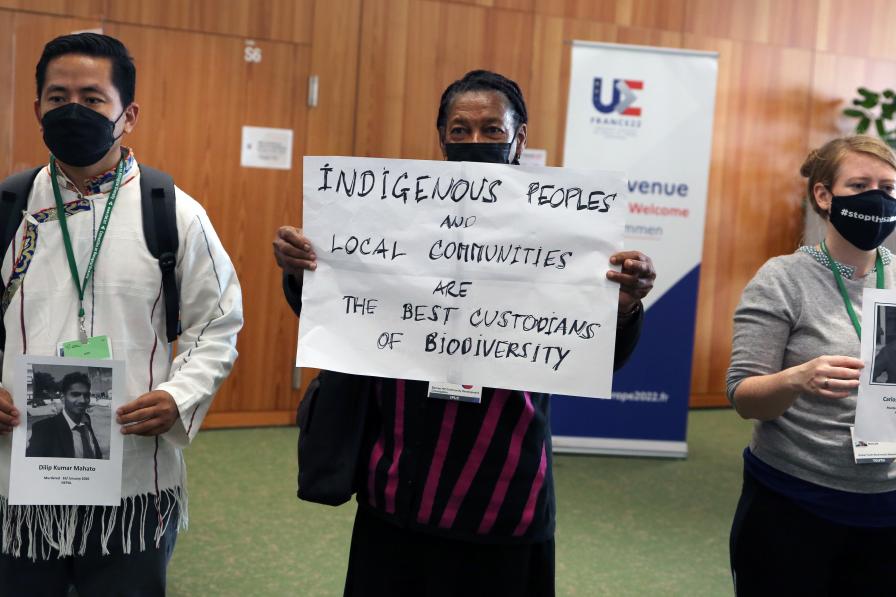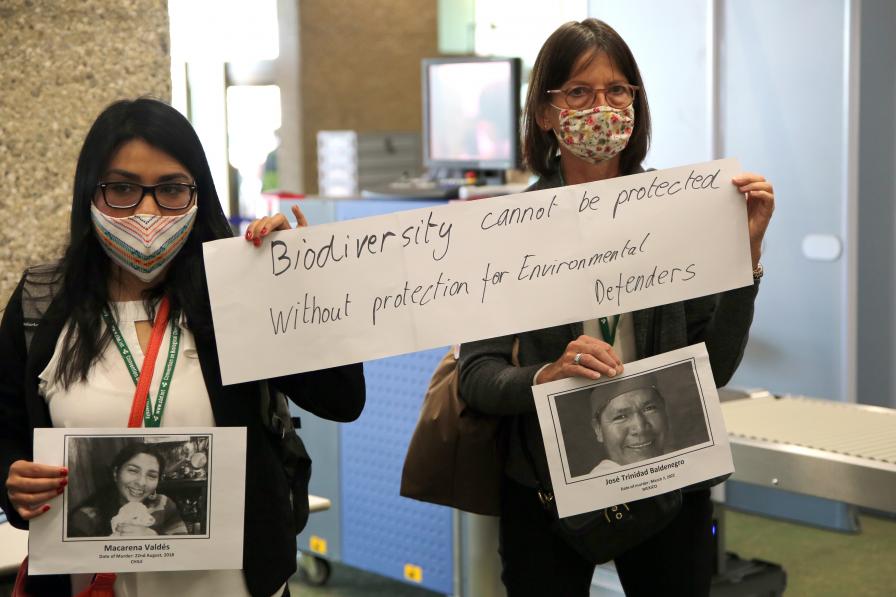Discussions continued, albeit at a slower pace than desired, at the Geneva Biodiversity Conference on Thursday, focusing on process effectiveness, digital sequence information (DSI), the implementation plan and capacity-building action plan for the Cartagena Protocol, and reporting, assessment, and review mechanisms. Exchanges were often timid in their substance; despite both plenary sessions going over allotted time, extra sessions will be required to clear up disagreements. A Friends of the SBSTTA Chair group met between sessions to clear up contentious text on biodiversity and health.
To dive deeper, read the full Earth Negotiations Bulletin daily report.
In the morning, the Subsidiary Body on Implementation (SBI) heard a stocktake of Contact Group progress, which underlined that issues remain on resource mobilization and the gender plan of action, despite the production of conference room papers by each Contact Group. In spite of an ambitious slate of four items in its agenda, the SBI plenary was only able to fully address the first, on effectiveness of progress. Discussions on experiences with, and the limitations of, virtual meetings led to a number of discussion points, including developing countries’ experiences with virtual sessions; and whether to prepare an analysis of options to “further improve the effectiveness” of Convention on Biological Diversity (CBD) meetings. Participants also addressed mainstreaming biodiversity across sectors, but deliberations were cut short due to time constraints.
The contact group on DSI met in the afternoon to consider a non-paper on the topic. Heated discussions ensued on various issues, leading to new text proposals and several bracketed paragraphs. These will necessitate more meetings within an already confined schedule. An informal group was tasked to work on resolving text and lifting brackets prior to the next meeting of the contact group planned for Sunday, 27 March.
In the evening, two SBI contact groups met: one focusing on the implementation plan and the capacity-building action plan for the Cartagena Protocol, co-chaired by Rigobert Ntep (Cameroon) and Rita Andorkó (Hungary); and one on reporting, assessment, and review mechanisms, co-chaired by Gillian Guthrie (Jamaica) and Andrew Stott (UK).
Five side events took place at lunchtime, focusing on:
- production landscapes for effective area-based conservation;
- eliminating and redirecting environmental harmful subsidies;
- circular economy - a powerful tool for turning the tide on biodiversity loss;
- United Nations system commitment for catalyzing collective action for nature; and
- building capacity for risk assessment and management of new genetic technologies: ethical and policy perspectives.
To receive free coverage of global environmental events delivered to your inbox, subscribe to the ENB Update newsletter.
All ENB photos are free to use with attribution. For the Geneva Biodiversity Conference, please use: Photo by IISD/ENB Mike Muzurakis.
